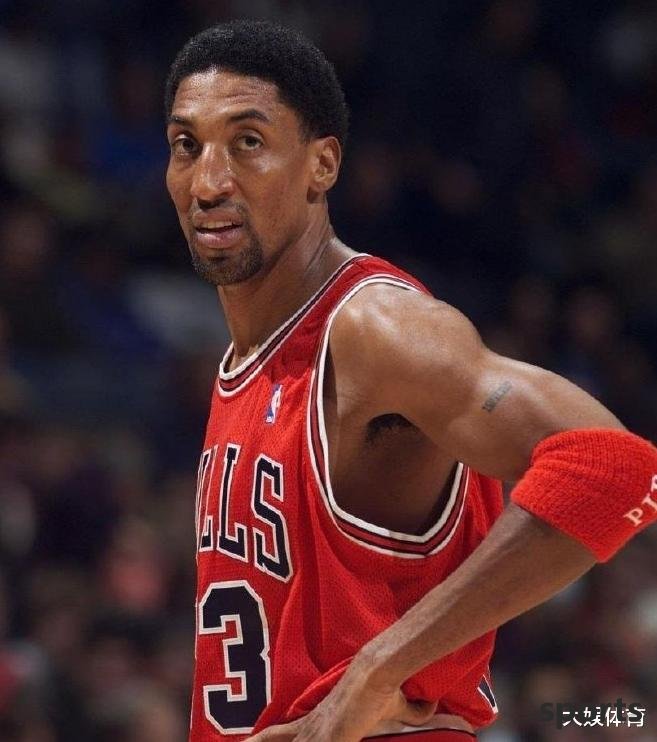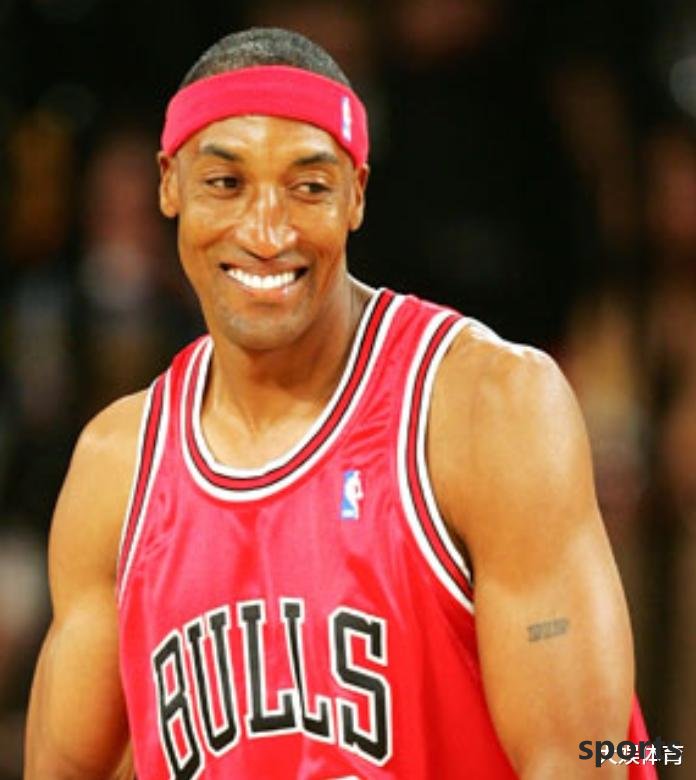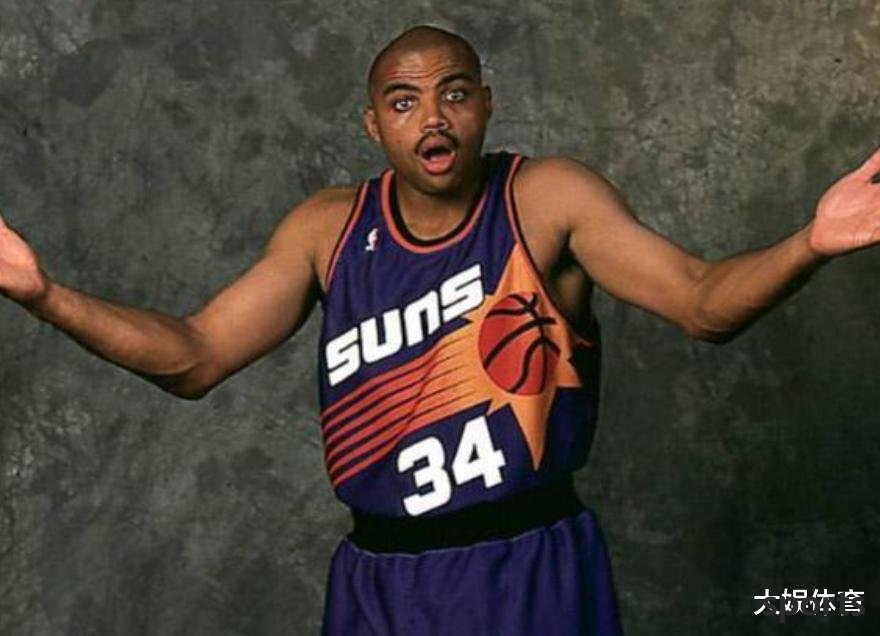AA-Sport > Basketball > Pippen is the number one small forward in history? Not to mention James, Larry Bird of the same generation is also better than Pippen
Pippen is the number one small forward in history? Not to mention James, Larry Bird of the same generation is also better than Pippen
On May 19, the names of the three legendary stars Pippen, Bird and James are always mentioned repeatedly. Although Pippen's brilliant achievements in the Bulls dynasty are undeniable, this view may be difficult to convince the public if he is the number one small forward in history. In fact, even if James, who came from behind, was obviously better than Larry Bird, who was in Pippen's contemporary, in terms of personal abilities, honor accumulation and influence on the game.

First from personal data, Bird averaged 24.3 points, 10 rebounds and 6.3 assists in his career, shooting percentage of 49.6% and three-point shooting percentage of 37.6%. In contrast, Pippen averaged 16.1 points, 6.4 rebounds and 5.2 assists in his career, shooting 47.3% from the field and 32.6% from three-point shooting percentage. Bird is all-round ahead in three major statistics: scoring, rebounding and assists, and is more efficient. Bird has entered the "180 Club" for three consecutive seasons (50% shooting percentage, 40% shooting percentage from three points, 90% shooting percentage from free throw percentage), showing amazing comprehensiveness and efficiency. Although Pippen is comprehensive, his dominance on the offensive end is significantly different from Bird.
In terms of personal honors, Bird won the regular season MVP (1984-1986), 3 championships (1981, 1984, 1986), 2 Finals MVP, 12 All-Stars, and 9 Best Team Team One. Pippen has 6 championships (1991-1993, 1996-1998), 7 All-Stars, 3 Best Team One Team One Team One Team One Team One Team One Team One Team One Team One Team One Team One Team One Team One Team One Team One Team One Team One Team One Team One Team One Team One Team One Team One Team One Team One Team One Team One Team One Team One Team One Team One Team One Team One Team One Team One Team One due to 6 Best Team One Team One Team One Team One Team One Team One Team One Time One Time One Team One Time One Team One Time One Time One Team One Time One Team One Time One Time One Team One Time One Time One Team One Time One Time One Team One Time One Time One Team One Time One Time One Time One Team One Time One Time One Time One Team One Time One Time One Time One Team One Time One Time One Time One Time One Team One Time One Time One Time One Time One Time One Team One Time One Time One Time One Time One Time One Time One Team One Time One Time One Time One Time One Time One Time One Time One Time One Team One Time Although Pippen has a larger number of championships, it must be noted that he has achieved these achievements around Jordan. Bird is the absolute core and leader of the Celtics, and his MVP and FMVP awards are of great value. Bird won the MVP for three consecutive years from 1984 to 1986, which is second only to Russell and Chamberlain in NBA history, fully demonstrating his dominance as the core of the team.

From the perspective of technical characteristics, Bird is one of the most comprehensive offensive players in NBA history. He has accurate shooting (37.6% career three-point shooting), excellent passing vision (6.3 assists per game in his career), and top basketball IQ. Bird's back-to-back singles, face-frame offense and off-ball runs all reached the master level. Pippen is known for being all-rounder and is particularly outstanding on the defensive end (8 best defense teams), but his creativity and stability on the offensive end are not as good as Bird. Bird was able to take over the game at a critical moment, and Pippen was more often the second choice for the team.
Byder is also better in the playoffs and key games. In the 1984 Finals against the Lakers, Bird averaged 27.4 points and 14 rebounds per game, with a shooting percentage of 48.4%; in the 1985 Finals, averaging 23.8 points, 8.8 rebounds and 5 assists per game; in the 1986 Finals, averaging 24 points, 9.7 rebounds and 9.5 assists per game. In contrast, when Pippen led the team alone during Jordan's first retirement (1993-94 season), although he performed well (average 22 points, 8.7 rebounds, 5.6 assists per game), the team eventually stopped in the Eastern Conference semi-finals. In the third game of the Eastern Conference semi-finals in 1994, Pippen refused to play in the last moment, and also questioned his leadership skills.

Judging from the influence on the game, Bird completely changed the definition of the small forward position. Before him, the small forward was more regarded as a scorer or defensive expert. Bird proves that a small forward can be an offensive hub, a main scorer and a core of the organization. He pioneered the "organizing striker" style of playing, paving the way for later Pippen, James and others. Pippen, based on Bird, raised the all-around ability of the small forward to a new level, especially on the defensive end. But Bird is obviously better in terms of innovation and influence.
's performance in international competitions is also worth mentioning. Bird participated in the 1992 Barcelona Olympics as a member of the "Dream Team". Although he had passed the peak at that time, his status and influence in the team were unquestionable. Pippen is also a member of the "Dream Team", but more of it is a role player. At the 1996 Olympics, Pippen led the "Dream Three Team" as the captain to win the championship, showing a certain leadership ability, but Byrd had retired at this time.
Data on the two's direct confrontation: Bird and Pippen played 20 times in the regular season. Bird averaged 20.3 points, 8.9 rebounds and 6.4 assists per game, and Pippen averaged 15.9 points, 6.8 rebounds and 5.1 assists per game. Bird clearly prevails. However, it should be noted that when the two started to have a direct conversation (Pippen entered the league in the 1987-88 season), Bird was already 30 years old and began to suffer from back injuries, while Pippen was a fledgling. Even so, Bird still suppresses Pippen on the data.
Judging from the length of career and peak durability, Bird retired after 13 seasons due to a back injury, but his peak period (1980-1988) is at the historical level. Pippen played for 17 seasons and had a longer peak period (1990-1998), but never reached Bird's height. Bird fell seriously due to injuries at the age of 32, and Pippen was able to help the Bulls complete their second three-game title at the age of 33. However, Bird is undoubtedly stronger in terms of peak height and absolute ability.
From the perspective of team roles, Bird has been the core and leader of the Celtics since entering the league, and bears the greatest responsibility and pressure. Pippen was a growing deputy in the Bulls in the first few years, and he did not become the real second-in-command until his first three consecutive championships. This role difference also affects the data accumulation and game style of the two. Bird needs to be ready to take over the game at any time, and Pippen can focus on the areas he is good at most.
In terms of status in basketball history, Bird is widely regarded as the greatest white player in NBA history and one of the key figures in the NBA revival in the 1980s.. His "black and white showdown" with Magic Johnson saved the NBA with low ratings at the time. Pippen was an important member of the Bull Dynasty in the 1990s, but was more regarded as a right-hand man around Jordan. Although Pippen's importance is undeniable, his historical status is obviously not as good as Bird.
Of course, Pippen also has his own advantages. His defense is significantly better than Bird (8 defenses vs Bird 0), with better physical fitness, longer career and more championships.
Related Posts
If Shepard is traded after 20 games, Udoka will definitely choose between Whitehead and Holiday.
BasketballThe Rockets are basically certain that Shepard will enter the starting lineup and may give him 20 games. If that doesn't work, the Rockets will make a decisive trade. Udoka should prefer White or Jrue Holiday. White and Jrue Holiday won a champi...
moreEzeli: Curry’s leadership attracted players to join KD& & Wiggins all left with championships
BasketballOctober 15th Recently, former NBA player Ezeli talked about his former teammate Curry on the "DubsTalk" program. Ezeli said: "Warriors fans, please cherish this time. They have won for 13 years. This kind of thing rarely happens...I h...
more24 points and 21 rebounds! The new Lakers player has been successfully inspected in two games. He is 213cm tall and can protect the basket. He is a perfect match for Dong Zhanli.
BasketballOn October 15, in the preseason match between the Lakers and the Suns, the Lakers lost. In this game, the Lakers' long-awaited return of Doncic, and Smart also returned. Many people are looking forward to seeing the chemical reaction between Sma...
more
Hot Posts
- Warriors: Petition Seth Curry to become the number one jersey sales in the season
- Congratulations to the Lakers! The forward line is traded, and it would be perfect to trade Reeves for Avdia
- The curtain of the NBA in the new season is about to kick off, and the heroes compete for the destiny
- Lakers General Manager Robert Pelinka was interviewed and responded positively to various speculations surrounding LeBron James recently
- US media commented on the strongest player every year in the 21st century: James dominated in 8 years, O Pang Kobe Jokic dominated in three consecutive games
- Only 505 points away, this 51-year NBA record will be broken by Westbrook in the new season
- The Lakers are really ungrateful! If James hadn t joined, the Lakers Dynasty would have collapsed long ago
- HG08 2025 NBA Finals: 4 Things to Watch in Game 6 of the Finals
- Young Hero! Jaylenway scored 40+ in the finals in the first three years of his career. In 2006, Wade s first player
- G1 in the Eastern Conference Finals made a shocking comeback! Brunson scored 40+, but he said this when interviewing him after the game!
Recent Posts
-
Only two reinforcements in one night, the Nuggets returned to the first echelon of the championship! Jokic was happy, and Lake Yong woke up
-
Just today, the NBA president announced a major decision, and the thin version of Doncic made the Lakers happy
-
4 years from the civilian team to the finals! How Pacers use "puzzle philosophy" to write a team building textbook
-
Having highlights also failed Harry s Eastern Conference Finals averaged 21 points, 6 rebounds, 10.5 assists and 2.5 breaks per game, with a shooting percentage of 45.8%.
-
The Lakers won & the MVPs produced & the playoffs won 26amp; the first place in the league
-
Cronin: Choosing Yang Hansen at the 16th pick is considered to be an early move. We will lose confidence in the future
-
Average 32 points, becoming the toughest super giant in the playoffs! Taking the initiative to cut salary by 110 million, you are indeed underestimated
-
ESPN analysis of the Knicks selection of coaches: Ma Long became the most obvious candidate, and the two famous coaches in NCAA may be interested
-
Antetokounmpo is still evolving!
-
James: McConnell is not the highest and fastest, but he is the key to getting to tiebreak in the finals